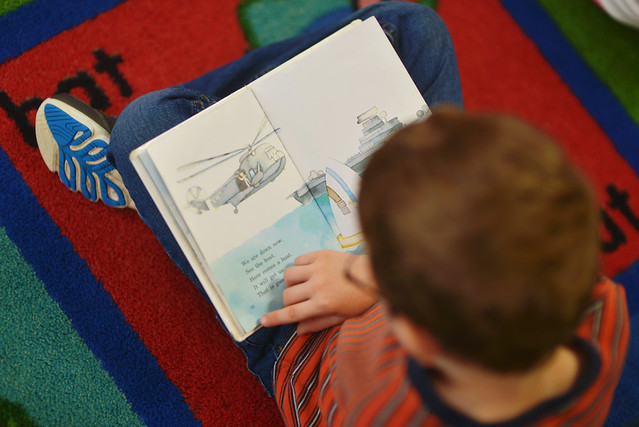
Lincoln County joined the LIFT network in 2018 with the primary goal of significantly improving literacy achievement. Beginning in the 2018-19 school year, we piloted the Core Knowledge Language Arts (CKLA) curriculum in two schools with the intention of learning how to best implement a rigorous literacy curriculum prior to rolling out CKLA district-wide in grades K-2. The success of the pilot led to a strongly supported decision to implement CKLA across the district during the 2019-20 school year ahead of the 2020 ELA materials adoption.
Implementing new and demanding materials is a substantial undertaking, and our district benefitted tremendously from the guidance of other districts in the LIFT network. In our first year of implementation in our pilot school, we saw the number of appropriately rigorous tasks increase from 33 percent to 100 percent — meaning that every student in our pilot classrooms is now receiving grade-appropriate assignments. Seventy percent of students were able to meet grade-level expectations on those assignments (up from 20 percent the year before), and 78 percent of teachers and 100 percent of school leaders in the pilot schools agree that “students’ reading comprehension is growing noticeably as a result of these materials.”
As part of our LIFT involvement, we partnered with a “mentor district,” Putnam County, who began their CKLA implementation during the 2016-17 school year. Putnam County educators proved to be an invaluable support by sharing resources and lessons learned, as well as welcoming us into their classrooms to observe CKLA lessons in action.
As detailed in the LIFT Materials Implementation Guidebook, implementation of rigorous instructional materials is an ongoing change management process. This progression is much easier when you can learn from the experiences of others who are undertaking similar work. By leveraging the power of the LIFT network, we’ve been able to provide teachers and leaders with a variety of supports that have led to greater success with the implementation of CKLA:
- We’ve taken teams of teachers to Putnam County to observe CKLA lessons and receive advice directly from teachers, coaches, and administrators with experience implementing the materials.
- We’ve partnered with Marshall County to provide CKLA-specific professional development for the teachers who are going into their second year with the materials in order to differentiate and further expand their learning and continue to strengthen instructional practices.
- We’ve used pacing guides and other resources developed by Sullivan County to assist teachers in pacing and sequencing CKLA, affording teachers the opportunity to give greater focus on instructional expertise, technique, and the use of effective practices within the new CKLA curriculum.
These actions speak to the importance and power of a network when implementing new instructional materials. Change of this kind requires building a culture for learning with a unified focus and demands effective execution at all levels of a school system: teachers, administrators, district staff, and parents.
Leveraging a network of districts with the same goals provides for greater effectiveness, helps to clear paths for teacher and student learning, and provides a system of support that is otherwise impossible. The knowledge, resources, and shared experiences of the network have allowed us to implement at a level of excellence that could not have been achieved without this kind of support.
As Tennessee moves toward the adoption of new ELA materials in 2020, I encourage other districts to seek out and leverage knowledge of strong curricular materials when creating and implementing plans for materials implementation. Reference the LIFT Instructional Materials Implementation Guidebook for guidance on this process or reach out to your CORE office ELA consultant for information.
Most importantly, though, talk to districts around you to understand what they are considering, what they have learned, and what they are able to share. We will all be undertaking this process at the same time, and we should lean on and leverage our networks to ensure the strongest instructional practices and materials for the students in our schools.
Jane Fisher is the instructional supervisor for Lincoln County Schools.